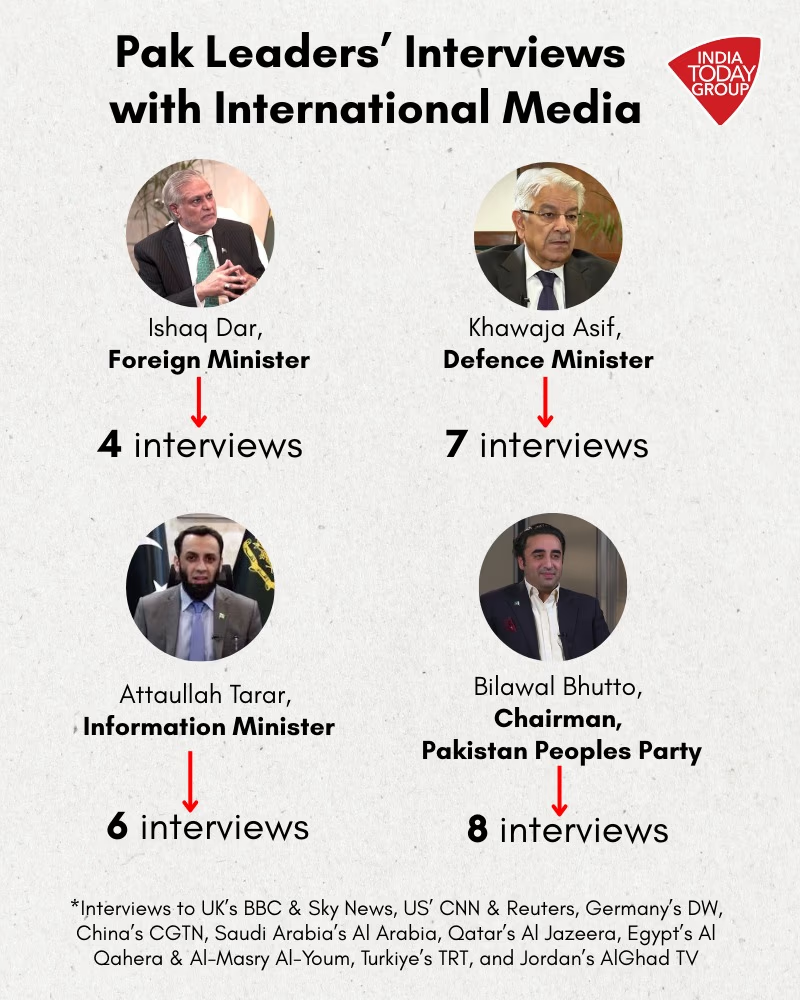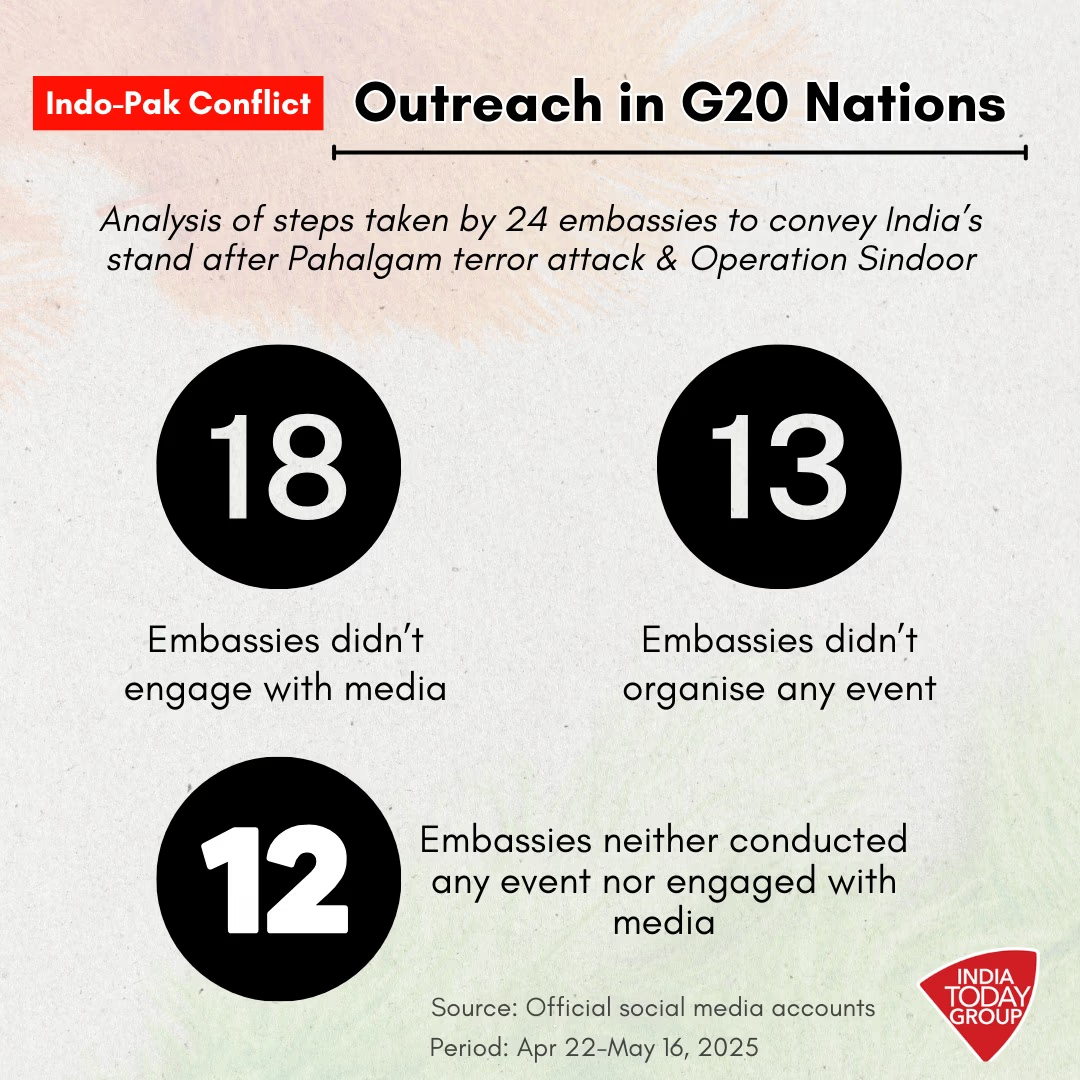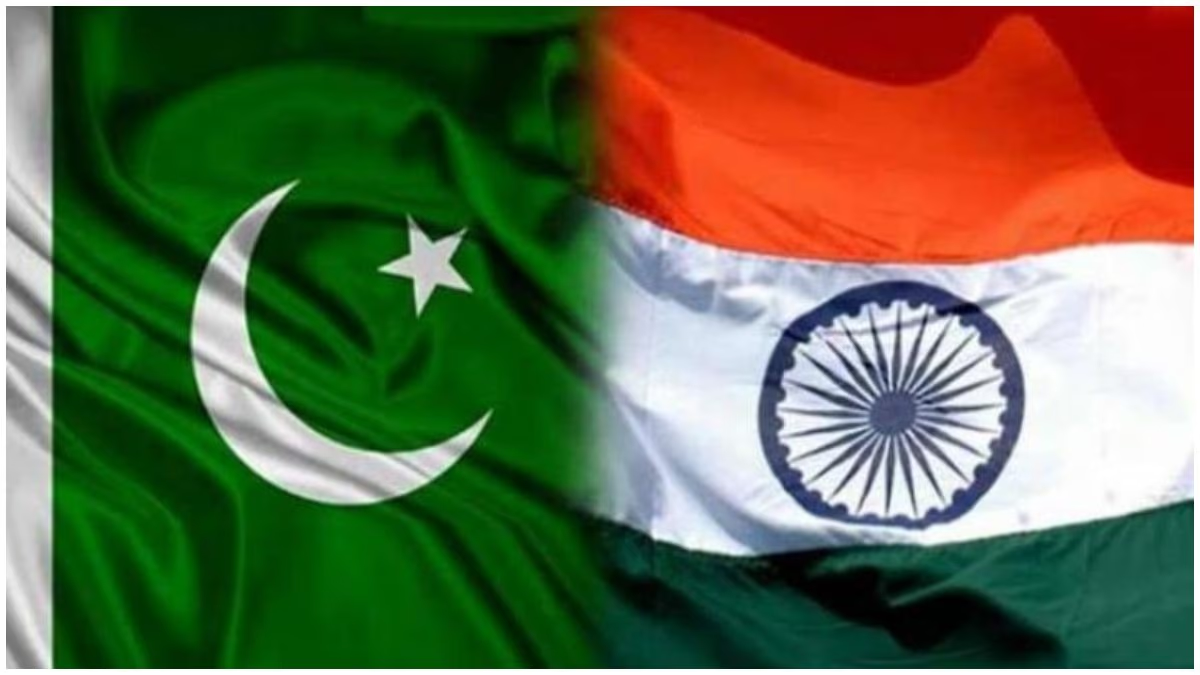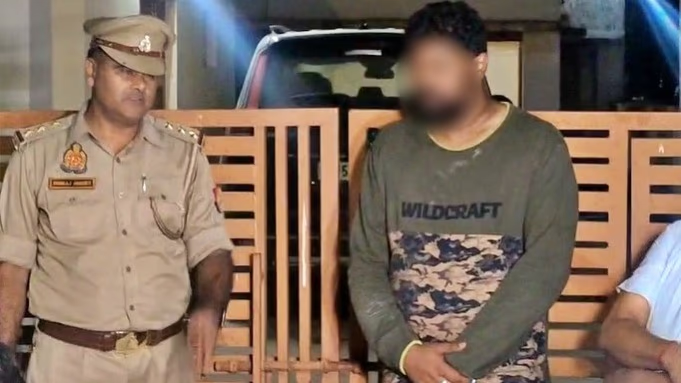Following the Pahalgam terrorist attack, Pakistani ministers and diplomats launched a campaign of misinformation against India, engaging in interviews on global TV channels. They tried to argue that the true issue between India and Pakistan wasn't 'terrorism' but 'Kashmir.' Pakistani cabinet ministers like Ishaq Dar, Khawaja Asif, Attaullah Tarar, and PPP leader Bilawal Bhutto conducted at least 25 interviews across popular channels in the USA, UK, Middle East, and Europe.
India garnered global support post the Pahalgam incident. However, several former diplomats believe that from April 22 to May 7, Indian embassies did not respond aggressively enough to the media. This allowed Pakistan to promote its false narrative. As strategic analyst Brahma Chellaney pointed out, 'The international media has shifted its focus from terrorism to Kashmir.'

Source: aajtak
'Indian Embassies Struggle to Connect with Local Media'
In response to Operation Sindoor's success, India decided to deploy a delegation of 59 MPs to major capitals worldwide to expose Pakistan-sponsored terrorism. Former ambassadors Rajiv Dogra and Anil Trigunayat believe that India needed to be more assertive in its communication efforts. Aaj Tak's OSINT (Open-Source Intelligence) team analyzed the activity of Indian embassies in 24 G20 countries. Notably, G20 accounts for 85% of global GDP.
Even though the Ministry of External Affairs (MEA) briefed foreign diplomats in New Delhi, analysis reveals that most Indian embassies lacked engagement with local media or did not host events to sway public opinion in India's favor—be it the Pahalgam attack or India’s counter-terrorism action on May 7 in Pakistan.
'Communication is Crucial'
According to many former diplomats, 'For a nation’s message to be impactful, embassies must operate on multiple levels: engaging with foreign ministries, meeting with local leaders and lawmakers, leveraging media outreach, and organizing public events like vigils or protests.'
Rajiv Dogra emphasizes, 'Making television appearances and engaging with leading newspaper editors is essential. If there’s a strong Indian community, connect with them. If there are trade ties, communicate with the business community. Most importantly, ensure swift responses.'
Over 75% of Embassies Did Not Engage in Interviews
Aaj Tak’s OSINT team's analysis showed that in 24 G20 countries (excluding India) and top 5-5 countries of the European Union and African Union, more than 75% of Indian embassies did not participate in interviews, podcasts, or write articles for newspapers. Countries like Argentina, Brazil, Canada, China, France, Germany, Indonesia, Italy, Japan, South Korea, Russia, Saudi Arabia, South Africa, Turkey, Netherlands, Egypt, Nigeria, and Morocco were among these nations.
Retweeting PMO and MEA Activities
Embassies in countries like Brazil, France, and Italy held no public events or engaged with the Indian community from April 22 to May 16. Twelve embassies did not engage with media or organize any public events, predominantly just reposting content from the Ministry of External Affairs, the Prime Minister's Office, or other government agencies. Posts in some countries were made in Hindi—a significant oversight in terms of local audience engagement.

Source: aajtak
The performance of certain embassies was lacking. The Indian embassy in South Africa, for example, made only three posts using terms like 'terrorism,' 'Pahalgam,' 'Kashmir,' or 'Pakistan.' Meanwhile, Indian ambassadors in the US and UK conducted three and four interviews, respectively.
Active Engagement by the Algerian Embassy
An intriguing note is the proactive engagement by the Indian embassy in Algeria, a relatively smaller African nation. Under Ambassador Swati Vijay Kulkarni, the embassy launched a targeted campaign on social media, posting in Arabic and French, while offering personal thanks to those expressing solidarity with India. Three community events were organized, alongside a media interview.
India's Communication Strategy Transformed Post May 7
Post May 7 witnessed a transformative shift in India's communication strategy. Female officials conducted crucial press briefings and released telling satellite imagery of Pakistani airbases' damage. Ambassador Anil Trigunayat stated, 'Through Operation Sindoor, we sent the world a powerful message of our capability to defend our interests.'
Both Dogra and Trigunayat concurred that India must adopt a proactive and aggressive communication strategy to assert its stance on international platforms. Ambassador Trigunayat notes, 'While certain segments of international media may have predisposed agendas, we could have better communicated our narrative. For long, I have advocated for India to appoint 'special envoys for strategic communication' not only during crises but also in peacetime.'




